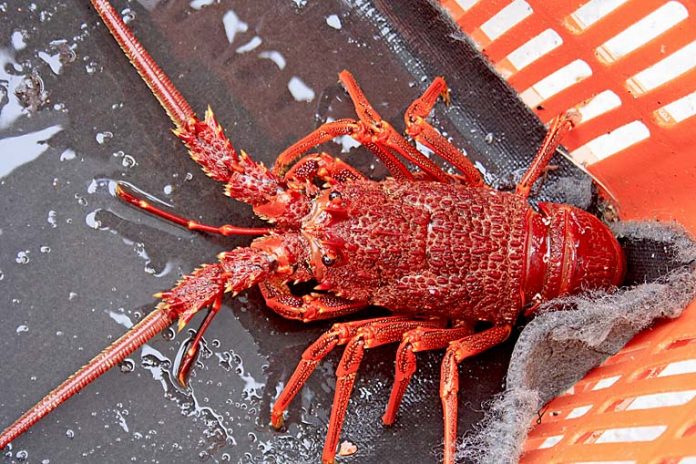A GROUP of regional commercial rock lobster fishers is pushing ahead with plans to establish a fledgling fishing cooperative at Port MacDonnell.
With the start of the season just weeks away, co-op proponents publicly spoke at a Grant District Council meeting last week about the looming establishment of the cooperative.
More than 20 fishers have banded together to wrest control of their futures following upward trend in factories purchasing quota licences.
It is feared corporate entities will swallow up the fishery’s licences, which means individual fishers could be eventually squeezed out of the industry.
The proponents are in the process of purchasing a factory site at Port MacDonnell to get the fish factory off the ground.
Rock lobster fisher Rodger Long – who fishers at Blackfellows Caves – told the meeting the establishment of the cooperative was about securing the future of fishers.
“The co-op’s model is open and transparent. Everybody can see in, there will be no wheeling and dealing, what they see is what they will get. They will have ownership and everything we do will go back to the fisherman,” Mr Long said.
“There have been some big hitters in the fishing industry that have jumped on it, they can see down the road what will happen if they do not do it.”
He said it was not about gaining higher prices given the solid returns fishers had been receiving in recent years.
“For the past 18 months, a group of fishermen have tried to successfully form a co-op – we now have 24 members,” the veteran fisher said.
“We feel this is important because we can see corporate entities taking over the industry through just power and money.”
Over the past 10 to 15 years, he said regional fishers had been “dropping off slowly” and bigger entities were coming in and buying quota.
“They are buying out factories as well as quota and squashing the little fellow out,” Mr Long explained.
“Our story is to form this (cooperative) to have the security of our industry and have somewhere for our children to come up and be part of that industry, as well as keeping that money in Australia and not going overseas into corporate ventures.”
Given the model was a cooperative, he revealed proponents had struggled to secure money from banks or financial lenders.
“So at this stage we have been basically self-funding the whole thing and of course it is a big struggle – it is a lot of money to come up with,” Mr Long said.
But he foreshadowed once the cooperative was up and running it would be a viable and sustainable business.
The veteran fisher warned licence holders faced tightening prices moving forward in the next 10 years.
“The corporate margins will get bigger and the fishermen’s margins will get smaller and the money will leave our area,” Mr Long said.
The group wanted to speak with the council to canvass how it could help the co-operative.
“All we are doing is exhausting every avenue we can for us to try and find our way, that maybe through rates or dumping material,” Mr Long said.
“It would be nothing major, but every little bit would help us on our way.”
Mr Long said the cooperative’s lobster would be branded as a Limestone Coast product with a West Australian company selling the export product.
He said this company had “massive” research and marketing capabilities.
“We will not be selling our lobsters through Perth, they will sell the product for us,” he said.
“It will be the Limestone Coast fishermen’s crayfish and the brand is still being made at the moment. It is our area and our fish.”
He said the lobsters would be transported to Melbourne and flown direct to its export destination, such as China.
Elected members resolved for council chief executive officer David Singe to liaise with the co-op proponents moving forward.








